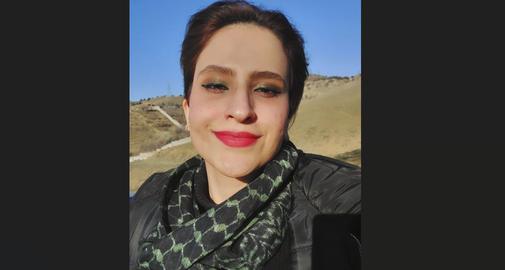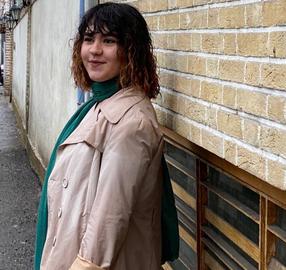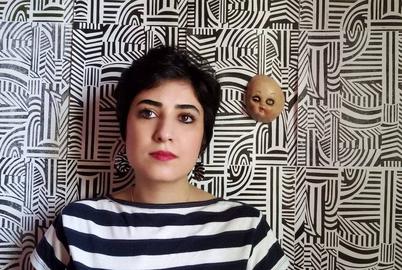Picture Iranian women on beaches, in restaurants, out on the streets and sitting on hillsides, or on park benches. Picture them in any public place. Then picture them not wearing the hejab, the Islamic covering women are forced to wear in Iran.
A Facebook campaign has done just that, attracting close to 40,000 followers and likes in less than a week. On Stealthy Freedoms of Iranian Women, women post photos of themselves without headscarves, taken in that brief moment where they uncovered their heads in a public place. Currently, it has attracted over 65,000 supporters.
It started with an exchange on the Facebook page of London-based Iranian journalist Masih Alinejad. She posted photographs of herself, commenting on the joy of feeling the wind blowing through her hair. Friends and followers asked her to stop: for them, still forced to wear the hejab, it was devastating to watch.
Soon after, Alinejad posted a photograph of herself driving down a road in Iran without a headscarf. “Hejab is being forced on women not only by the Morality Police,” she wrote in the caption, “but also out of consideration for family, through wanting to keep a job and because of fear of judgment from others.” She wrote that she had experienced all of these pressures too. And she was sure that “most Iranian women who don’t believe in the forced hijab have enjoyed freedom by stealth.” And that’s how the Stealthy Freedoms page began.
Renewed Calls for Morality
But this is not just about social media and Iranian women posting daring photos online. It’s a direct response to renewed efforts to enforce Islamic dress—and punish those women who don’t. Recent months have seen hardliner politicians and activists attacking the policies of the Rouhani administration and appealing to the Iranian public to protect the values of the Islamic Republic, celebrating its sovereignty and honoring Shi’a tradition and practice. And, inevitably, how women behave has become an important part of this. Some have made a seamless transition from morality to patriotism: in its coverage of the Stealthy Freedoms campaign, the semi-official Fars News Agency published a photo of Masih Alinejad with the headline “The Call of London Counter-Revolutionaries for Doing Away With Hejab in Iran”.
“I did not put out a call,” Alinejad told IranWire. She asked friends and followers whether they’d be interested in publishing photographs of themselves without headscarves, along with any captions they chose to provide. “I thought they would send me a few photographs to publish on my own page.”
“I am a journalist and I am duty-bound to report. Many women create hidden freedoms for themselves. I just asked them if they had pictures of moments they wanted to publish and they responded.” The number of photographs sent to her grew steadily, and she decided to dedicate a whole page to the subject.
On Wednesday, May 7th, a group of hardliner activists and seminary students protested against lapsed morals and inappropriate dress, gathering on one of Tehran’s main squares. Among their chants was the challenge: “Man, where is your honor? Where is your wife’s hejab?”
Police soon broke up the rally because the organizers had not obtained a permit, but not before a 14-point list of demands was circulated and signed by the group. The declaration called for the public prosecutor’s office to pursue complaints about improper dress and the introduction of special tribunals to deal with hijab-related offenses. It also called for the Islamic Ministry of Guidance to be more thorough when inspecting books, movies and magazines for offensive or vulgar content.
IranWire tried to interview one of Wednesday’s demonstrators, Farajollah Salahshour. “I won’t talk to you expatriates,” he said. “You are the ones who promote corruption and encourage people to flout hejab [laws].” Then he hung up.
The Battle of the Hejab Continues
The Ayatollah Iravani Seminary, which organized Wednesday’s demonstration, advertised the event weeks in advance, posting notices across Tehran. One of its public relations employees, who asked to remain anonymous, told IranWire that, although measures had been taken to arrange the rally in an official capacity, at the last moment the permit was declined. “Hejab in the country is in a sorry state,” he said. He said the issue needed to be addressed urgently. “We will have another rally soon. The details are being worked out.”
The PR official said that Persian-language satellite broadcasts from outside the country and the internet are promoting anti-hejab feeling. Those who believe in the Islamic Revolution “are unhappy with the young people who imitate the West,” he said. There are fears that Iran’s youth are being “lured” into Western behavior.
The Ayatollah Iravani Seminary is not only making its voice heard over women and the hijab. A quick look at its website reveals its involvement in last weekend’s “We Are Anxious” event, attended by supporters of the Islamic Revolution Stability Front coalition and attracting a new generation of outspoken activists. The event was one of the most well attended anti-Rouhani gatherings in recent months. Prominent coalition members include Ayatollah Mesbah Yazdi and former unsuccessful presidential candidate and nuclear negotiator Saeed Jalili.
Reports vary as to the number of people who attended Wednesday’s rally—from a few hundred to 4,000. Whatever the numbers, the conservative campaign looks to be building momentum. So for many women in Iran who feel their freedoms are under attack, the recent Facebook campaign is vital. For some, the term “stealthy freedom” might be regarded as an oxymoron, but Alinejad explains that’s not the case: “Hejab has been forced on women not just by the government, but also by family, by society, by people in the streets.” Women create a moment of freedom for themselves and record it.
“Those who participated in the protest rally have their own official media,” Alinejad says, “But the 40,000 who follow [the Facebook] page don’t have an official voice. This page is a chance for them to tell their stories.”
visit the accountability section
In this section of Iran Wire, you can contact the officials and launch your campaign for various problems






























comments